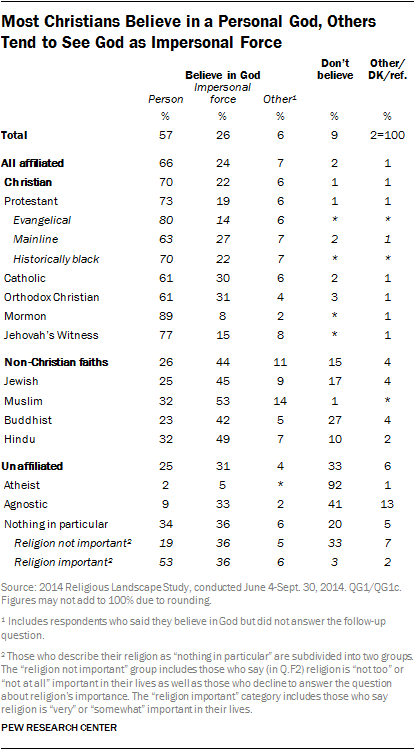In the past year I've read two books related to religion. One is a History of Christianity, and the other is a collection of letters written by a female member of a monastery in the 17th century.
They've both been interesting works which have brought similar themes to light, but the collection of letters has been especially interesting because it's a direct look into the mind of someone from the era who was extremely devout. They're interesting because in her writing you can see how fully and completely enamoured she is with the idea of God. The world is majestic, and everything, no matter how minute, is painted with an ethereal quality.
The History of Christianity is a little more indirect, and the aspects of social history in it are focused around the time of Jesus, but during that part of the book you can tell that many members of Roman society, and later medieval Europeans, are looking for an explanation of the world around them. These are people who live in a pre-scientific world where essentially nothing about the natural world is known, and the natural outcome of that dynamic is a creator.
Where the two books intertwine is that any human society, in lieu of an evidence based explanation, needs to rationalize their own existence in some way. So ancient Romans, and even our 17th century woman were people who were inclined to believe a story about themselves which gave their existence a back-story.
Put another way, to understand the religious mind you need to put yourself in the shoes of someone who was living in a pre-scientific world, where myths of the ancients held sway, and nothing in your environment really made sense. These were people in an entirely different mode of existence to many in the modern world.
And now, because of two thousand years of inertia, and many pockets of our planet where science hasn't taken root, lots of people are still living in a non-scientific mindset, where the explanation is 'God'.
They've both been interesting works which have brought similar themes to light, but the collection of letters has been especially interesting because it's a direct look into the mind of someone from the era who was extremely devout. They're interesting because in her writing you can see how fully and completely enamoured she is with the idea of God. The world is majestic, and everything, no matter how minute, is painted with an ethereal quality.
The History of Christianity is a little more indirect, and the aspects of social history in it are focused around the time of Jesus, but during that part of the book you can tell that many members of Roman society, and later medieval Europeans, are looking for an explanation of the world around them. These are people who live in a pre-scientific world where essentially nothing about the natural world is known, and the natural outcome of that dynamic is a creator.
Where the two books intertwine is that any human society, in lieu of an evidence based explanation, needs to rationalize their own existence in some way. So ancient Romans, and even our 17th century woman were people who were inclined to believe a story about themselves which gave their existence a back-story.
Put another way, to understand the religious mind you need to put yourself in the shoes of someone who was living in a pre-scientific world, where myths of the ancients held sway, and nothing in your environment really made sense. These were people in an entirely different mode of existence to many in the modern world.
And now, because of two thousand years of inertia, and many pockets of our planet where science hasn't taken root, lots of people are still living in a non-scientific mindset, where the explanation is 'God'.

